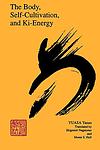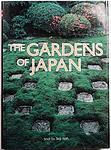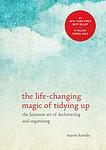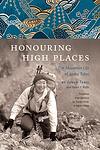The Greatest Portuguese, Japanese "Nonfiction" Books Since 1980
Click to learn how this list is calculated.
This list represents a comprehensive and trusted collection of the greatest books. Developed through a specialized algorithm, it brings together 300 'best of' book lists to form a definitive guide to the world's most acclaimed books. For those interested in how these books are chosen, additional details can be found on the rankings page.
Genres
Countries
Date Range
Reading Statistics
Click the button below to see how many of these books you've read!
Download
If you're interested in downloading this list as a CSV file for use in a spreadsheet application, you can easily do so by clicking the button below. Please note that to ensure a manageable file size and faster download, the CSV will include details for only the first 500 books.
Download-
1. The Feeling Of What Happens by Antonio Damasio
This book delves into the complex interplay between emotion, consciousness, and the human brain, offering a groundbreaking perspective on how our feelings shape our experiences of the world. The author, a renowned neuroscientist, explores the biological roots of consciousness and argues that our emotions are a crucial component of the self, playing a fundamental role in the way we perceive and navigate our surroundings. Through a combination of scientific research and philosophical inquiry, the text provides a compelling examination of the essence of human awareness, suggesting that the feeling of what happens in our minds is central to our identity and understanding of life.
-
2. The Body by Yasuo Yuasa
"The Body" explores the intricate relationship between the mind and body from the perspective of Eastern philosophies and medicine, particularly focusing on Japanese thought. The book delves into how cultural differences between the East and West influence the understanding and treatment of the body. It discusses the historical and philosophical evolution of body concepts in Japan, integrating theories from Western psychoanalysis and philosophy to challenge the often dualistic approach seen in Western thought. The author proposes a more holistic, integrated view of the body-mind connection, emphasizing the importance of understanding this relationship in the context of human health and well-being.
-
3. Journey To Portugal by José Saramago
In this travelogue, the narrative unfolds as a journey through Portugal, guided by a keenly observant and contemplative traveler who delves into the heart of the country. As he traverses from north to south, the traveler reflects on the rich tapestry of landscapes, historical sites, and the everyday lives of the Portuguese people he encounters. The book is as much an exploration of the country's culture, history, and identity as it is a personal quest for understanding and connection, offering readers an intimate and lyrical portrayal of Portugal's soul.
-
4. The Gardens Of Japan by Teiji Itoh
"The Gardens of Japan" explores the art and aesthetics of Japanese gardens, tracing their development from ancient times to the modern era. The book delves into various garden styles, from the serene rock gardens of Zen Buddhism to the ornate tea gardens and expansive stroll gardens. Richly illustrated and detailed, it examines the philosophical and cultural underpinnings that have shaped garden design in Japan, highlighting the intricate interplay of nature, spirituality, and art. The author provides insights into the symbolic elements of these gardens, their use of space and natural materials, and the meticulous care that goes into their creation and maintenance, offering readers a deep appreciation of this enduring art form.
-
5. The Life Changing Magic Of Tidying Up by Marie Kondo
"The Life Changing Magic of Tidying Up" is a practical guide that offers a fresh perspective on decluttering and organizing one's home. The author introduces the KonMari Method, a systematic approach to tidying that encourages individuals to keep only items that truly spark joy in their lives. Through insightful anecdotes and step-by-step instructions, the book provides valuable insights on how tidying can lead to a transformative and joyful lifestyle.
-
6. Totto Chan, The Little Girl At The Window by Tetsuko Kuroyanagi
The book is a charming autobiographical memoir of a young girl's experiences at an unconventional school in Tokyo during World War II. The narrative focuses on the unique educational approach of the school's headmaster, who values freedom, creativity, and individuality in the educational process. Through a series of heartwarming episodes, the book illustrates how the school becomes a delightful haven for the girl, fostering her curiosity and love of learning amidst the backdrop of a society facing the challenges of war. The story is a testament to the impact of progressive education on young minds.
-
7. The Power To Compete by Hiroshi Mikitani, Ryoichi Mikitani
This book delves into the economic challenges facing Japan, offering a dialogue between a father, an economist, and his son, a successful entrepreneur. Together, they explore the reasons behind Japan's stagnation and propose solutions to revitalize its economy. They argue that Japan needs to embrace innovation, deregulation, and entrepreneurship to regain its competitive edge in the global market. The book combines a deep understanding of economic principles with practical insights from the business world, making a compelling case for structural reforms and a new mindset to power Japan's comeback on the world stage.
-
8. Honouring High Places by Junko Tabei
"Honouring High Places" is a compelling collection of autobiographical stories chronicling the remarkable life of the first woman to reach the summit of Mount Everest. The book offers a deeply personal account of the challenges she faced, from societal expectations in Japan and the physical demands of climbing to the joys and tragedies encountered on her expeditions. Through her vivid storytelling, the author paints a picture of her groundbreaking climbs, her dedication to environmental issues, and her commitment to encouraging women to embrace adventure and challenge gender norms in the world of mountaineering.
-
9. The Beauty Of Everyday Things by Soetsu Yanagi
The book is a reflective exploration of the philosophy and appreciation of craftsmanship, particularly in the context of Japanese folk art. It delves into the aesthetic and spiritual qualities of ordinary objects, emphasizing the beauty found in simplicity, imperfection, and the natural patina that comes with age and use. The author argues for the value of handcrafted items, suggesting that they possess an inherent life and character often absent in mass-produced goods. Through a series of essays, the work invites readers to reconsider their relationship with the everyday items that surround them, fostering a deeper understanding of the cultural and historical significance of artisanal practices.
Reading Statistics
Click the button below to see how many of these books you've read!
Download
If you're interested in downloading this list as a CSV file for use in a spreadsheet application, you can easily do so by clicking the button below. Please note that to ensure a manageable file size and faster download, the CSV will include details for only the first 500 books.
Download







